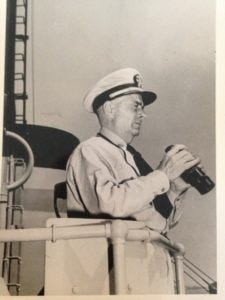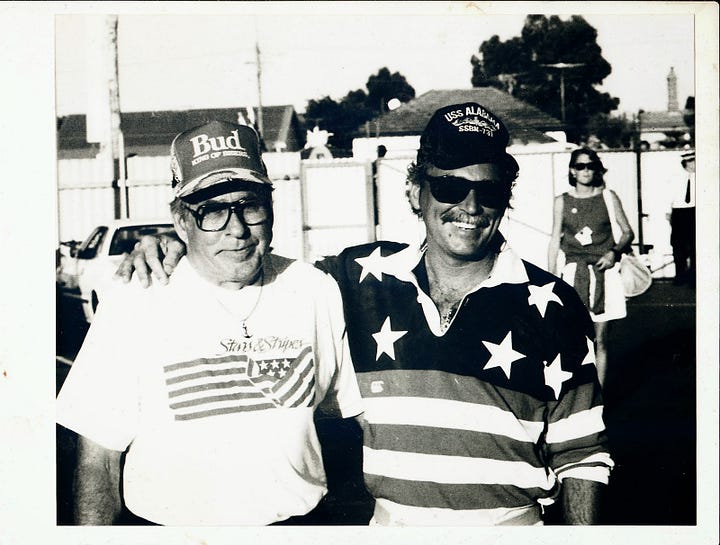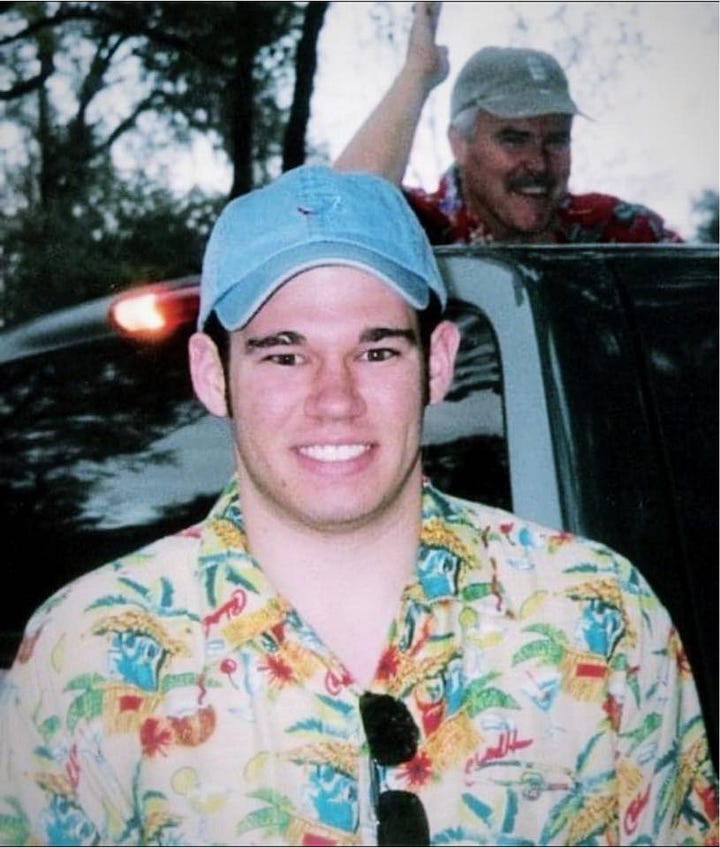The news that came over the coconut telegraph early September 2 was far from welcome. Jimmy Buffett, the high priest of island escapism, after 76 years of perpetual motion, was dead. Lymphoma by way of skin cancer. As the news sank in, I recalled Buffett’s own initial thoughts at the passing of John Wayne recorded in the song, Incommunicado:
Can't believe the old man's gone...
But now he's incommunicado
Leavin' such a hole in a world that believed
That a life with such bravado
Was takin' the right way home.
It’s a fitting providence that Buffett, the herald of endless summers, died on the eve of Labor Day weekend. Having been a Buffett fan from my youth, I’m compelled to write an obituary. Or is it a tribute? Call it a tributary, to reflect on Buffett the man, Buffett the musician, and Buffett the mogul. But my words will fall far short of others with more personal knowledge of him in those capacities or who possess greater gifts of articulation. I’ll try to eulogize the Buffett I knew best: the prophet of paradise.
The Man
James William Buffett was a son of West Florida. Yes, he was born in Pascagoula, MS, and, granted, he was reared in Mobile, AL. But both are well within the historic territorial boundaries of Greater Florida, despite what a few trifling treaties may say. He grew up transfixed by stories of the sea from his grandfather, a steamship captain. Those nautical narratives planted seeds. Given years of tropical sun and fertilized by plenty of life experience, they bore much creative fruit throughout Jimmy’s life.


He traded in his trombone from high school band for a guitar in college at Southern Miss after he saw his frat brother from Kappa Sigma serenading some ladies with a few tastefully clever chords.
The Musician
His love of wine, women, and song scuttled any hopes his parents had of him becoming a Jesuit priest or a Naval Academy grad. Instead of the plans that they had, Buffett embarked on a journey to become the greatest beach bard since Brian Wilson and as original a singer-songwriter as Bob Dylan. But his tunes lacked the musical genius of the former and his more lighthearted lyrics eschewed the cryptic profundity of the latter, so Buffett remained a novelty act in the eyes of many critics. Buffett wouldn’t dispute the label but added a caveat:
And Buffett preferred the cheers of his fan to the jeers of his critics. “I listen to my audience. I connect with my audience. I don’t play at my audience, I play for my audience.” Among his fans, Buffett could count Bob Dylan who revealed in a 2009 interview that Death of an Unpopular Poet and He Went to Paris were two of his favorite songs. Way back in 1982, Dylan and Joan Baez even sung A Pirate Looks at Forty live.
Some slandered Buffett as a sellout, as if commercial success equated to creative compromise or taking unearned career shortcuts. Buffett did neither. Like any sailor worth his salt, he charted a course and saw it through. Buffett’s career took time to develop. He busked in New Orleans and Nashville, slowly developing his “gulf + western” sound. His first album, 1970’s Down to Earth, sold a whopping...324 copies (have teenage Jim could play a sad trombone here). Undeterred, he took his sound, mixed in a few measures of Florida dive bars, added a dash of Duval Street, and muddled in some island spices. The result? An intoxicating sonic cocktail, dubbed “drunken Caribbean rock ‘n’ roll,” that musically matched his playfully unpretentious lyrics.
What Jimmy Buffett put to music, Jim Mazzotta put to canvas, and by the mid-1980s, thanks to word of mouth and word of merch, Buffett’s persona as the barefoot piped piper of paradise was firmly established, first and foremost in the hearts of minds of his die-hard fans: parrotheads. The Grateful Dead birthed “dead heads”: avid fans who would follow Jerry Garcia & Co. around from live jam session to live jam session. Fans of Jimmy Buffett and The Coral Reefer Band, taking a cue from the graphical influence of Mazzotta’s Caribbean Soul shirts, took the name parrotheads (or parrottheads, the double “tt” mirroring the spelling of Jimmy’s surname).
Over his remaining decades, Jimmy Buffett, the man and the musician gave way to the myth and the legend. The tireless tropical troubadour became poet laureate of paradise. Takin’er easy for all us sinners.
My First Look
I came to the flock by way of my Buffett-loving brother-in-law, Mike. We played his cassette tape of 1985’s compilation Songs You Know By Heart in the car going to, driving around, and returning from St. Augustine Beach each summer. Its melodies were as ubiquitous as the tide roaring, the breeze blowing, and the seagulls preaching. For a grade school kid, a catchy song about the simple pleasures of a hamburger or shark fins was the height of aural artistry. He Went To Paris was the first Hemingway story I heard before I knew who Hemingway was and at a time when the most prominent Ernest in my life was the one who went to camp and saved Christmas. Margaritaville may be the national anthem of Parrotthead Nation, but Son of a Son of a Sailor, A Pirate Looks At Forty, and Changes In Latitudes, Changes In Attitudes are the America The Beautiful, My Country Tis of Thee, and Amazing Grace respectively.


After several summers and Caribbean Soul shirts later, I upgraded to the four-disc compilation of Buffett’s quadruple platinum Boats, Beaches, Bars & Ballads. For middle school me, it was a musical Cambrian explosion. Tin Cup Chalice, Distantly in Love, Havana Daydreaming, and Treat Her Like A Lady remain integral tracks on many Spotify playlists and essential listening to any Buffett fan.
The Mogul
The BBB&B box set came with a booklet. In it, Buffett decried gaudy multistory condos that mar many a coastline. In time, that offhand remark stood in ever starker contrast to the increasing commodified and corporatized state of Buffett’s empire of escapism that came to encompass resorts, casinos, and beachfront retirement communities.
For the man who wrote the song, Math Sucks, Buffett no doubt relied on plenty of accountants. Turns out, it takes more than a little love and luck to get by in this megalo-modern world. A crack legal team and well-audited financial statements don’t hurt. His lifelong work for environmental conservation could get occasionally drowned out by the roar of his private planes’ engines. Much could be written on how Buffett, the beach bum turned billionaire, encapsulated Baby Boomer success and excess, and personified that generation’s idealism and internal contradictions. I’ll leave that to David Brooks and others to suss out.
But Margaritaville Inc. employs thousands directly and indirectly, and Buffett once said, “I’m glad if I had anything to do with the fact solo guitar players around the world can play my songs and get a job,” Buffett said. “I’m happy that happened.” I’ll drink to that.
The Prophet
Jimmy Buffett’s catalog of written or recorded songs runs close to 350. In that canon, he sings of adventures on the high seas and among lowlifes; the romance of faraway ports of call; love lost and rekindled; and rites of passage. He pines for a past that seldom was; wistfully laments the finitude and transience of life’s pleasures; and belts out joyful paeans to the quotidian comforts of ordinary life.
Jimmy Buffett never shied away from religion. The first song of his first album was The Christian. In Fruitcakes, he touches on religion and “the thin line between Saturday night and Sunday morning.” The lapsed Catholic school boy sings, albeit playfully, about his inner pagan.
C.S. Lewis saw paganism as eminently preferrable to the apostate mindset so dominate in his day and ours.
For a Pagan, as history shows, is a man eminently convertible to Christianity. He is essentially the pre-Christian, or sub-Christian, religious man. The post-Christian man of our day differs from him as much as a divorcée differs from a virgin... For faith perfects nature but faith lost corrupts nature. Therefore many men of our time have lost not only the supernatural light but also the natural light which pagans possessed.
One enduring theme woven throughout Buffett’s work was the search for a party in paradise, away from the toil and of the rat race; what the Preacher in Ecclesiastes called the vanity and futility of life under the sun. A paradise that at once fulfills our need for novelty along with our desire for nostalgia. The newness of a vacation and the familiarity of a homecoming.
No song captures this ethos better than One Particular Harbor.
But there's this one particular harbor
So far but yet so near
Where I see the days as they fade away
And finally disappear...
And there's that one particular harbour
Sheltered from the wind
Where the children play on the shore each day
And all are safe within...
The earthly paradises rhapsodized by Jimmy Buffett point to the ultimate heavenly paradise. That one particular harbor for all restless and weary souls (Caribbean or otherwise) is not a place on a map but a man on a cross: Jesus Christ. His pain purchased our paradise; his death, our life. He’s the true ark, the cleft of the rock, the mighty fortress, the bulwark never failing. And all are safe within.
But now I think about the good times
Down in the Caribbean sunshine
In my younger days I was so bad
Laughin' about all the fun we had
I seen enough to feel the world spin
Mixin' different oceans meetin' cousins
Listen to the drummers and the night sounds
Listen to the singers make the world go 'round
While self-denial and austerity are part of the Christian life, they aren’t to be undertaken in self-righteous solemnity. Joy should mark the Christian walk. Jesus’ first recorded miracle was turning water into wine at a wedding. He is, as Tim Keller ably preached, the true Lord of the Feast and Lord of the Wine. The wedding at Cana prefigures the true party at the end of the world: a wedding feast between Christ and his bride, the church, in the new heavens and the new earth. A paradise truly free of sin, cancer, and death. A place where, upon our arrival, we can confidently say, “I have found me a home.”
I’m thankful for Jimmy Buffett’s God-given gifts and the uses to which they were so ably put. The music made, the lyrics written, and the life lived offered a welcome escape for so many on their earthly pilgrimages. Like so many good artists, he sought answers to the questions that bother us so.





